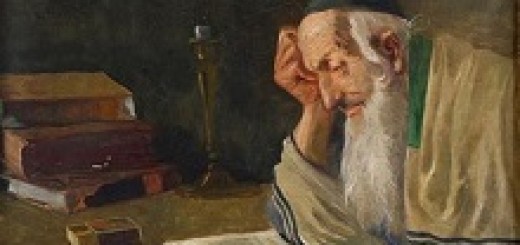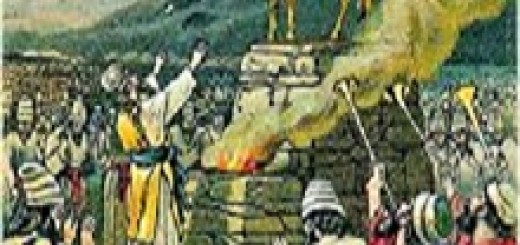By Avner Friedmann
This Parshah deals with the laws of a woman who would give her husband good reason to suspect her of adultery, by being seen secluded with another man, after ignoring her husband’s previous warnings. Since the husband had no proof, the Torah provides a miraculous process to prove her guilt or innocence. If she sinned, this process would cause death for her and her lover. But if she was proven faithful, HaShem would bless her with special children, and the trust and love in her marriage would be restored. If she was unfaithful but confessed ahead of time, her marriage would end in divorce.
The process included drawing pure water called “the bitter water” from the Temple’s Basin. A parchment scroll inscribed with HaShem’s sacred Name was put in the water, which caused the Name to be erased. It was then given to the woman to drink in order to test her guilt or innocence. Her husband had to be innocent of any inequity for the test to succeed. When the number of adulterers increased, this practice was discontinued[1].
The Holy Zohar writes[2] that this test was used even prior to the giving of the Torah. While in Egypt, the Jews kept the laws of family purity, and kept away from any intimate relationships with the Egyptians; as hinted in the scriptures[3]: “A garden locked up is my sister, the bride, a spring locked up, a fountain sealed”. The daughters of Israel were guided by modesty and purity throughout the exile in Egypt[4], and in their merit, the Children of Israel were redeemed. There was only one woman who was forced into a relationship with an Egyptian, and the Torah makes a specific point to mention it, in order to show that it was the only incident[5].
However, the Egyptians claimed that it couldn’t be that after being enslaved by them for so long, all the daughters of Israel kept their purity[6]. After all, they were physically ruled by the Egyptians, who were steeped in promiscuity and immorality. They claimed that there were many Egyptians among the Children of Israel, and therefore they were not worthy of having the Divine Presence dwell in their midst. Other nations began to raise the same suspicions, and scoffed at Israel. As a result, even some of the Jewish men began to doubt their wives.
But when it comes to the honor of His children, HaShem decides to intervene. In order to remove any doubts, HaShem instructed Moshe to perform the “bitter water” test, not only for the women, but for the entire nation, females and males alike, in order to show the world that all His people were from the seed of Israel.[7]
After leaving Egypt, the Torah states,[8] “they went for a three day period in the Wilderness, but they did not find water. They came to Mara, but they could not drink the waters of Mara because they were bitter; therefore they named it Mara (from the root ‘bitter’). The People complained to Moshe, saying, “What shall we drink?” He cried out to a HaShem, Who showed him a tree. Moshe threw the tree into the water and the water became sweet. There He established for (the nation) a decree and an ordinance, and there He tested it.” This test was the test of “the bitter water”.
The tree served as a parchment inscribed with the Name of HaShem, which was put into the bitter water. The water became sweet, which meant that all the Jewish people, without exception, passed the test, and were found to be pure of any blemish. It proved that they left Egypt with the same purity they entered it two hundred and ten years earlier.
As an everlasting proof, and as a testimony that they were all His children, HaShem sealed His Name together with theirs, as the scripture writes[9]: “The tribes of HaShem, a testimony for Israel”. The Torah itself brings a testimony as well[10]: “All the legions of HaShem left the land of Egypt.” The Torah wouldn’t have called them “the legions of HaShem” if they weren’t all from the seed of Israel, concludes the Zohar.
The Jewish people were found to be worthy of receiving the Torah at Mount Sinai shortly thereafter, and to having the Divine Presence Dwell among them. May we succeed in making the needed corrections in our own lives when it comes to modesty and morality, and help remove the spirit of impurity from the land, as written,[11] ”And I will remove the spirit of impurity from the land” and merit Moshiach, speedily in our days. Amen
[1] Sotah 47b
[2] Shemot 3b-4a.
[3] Song of Songs 4:12, brought in Vayikra Rava 32:5.
[4] Rashi on the verse.
[5] Vayikra 24:10-12.
[6] Song of Songs Rava 4:12
[7] Zohar, Nasso 124b.
[8] Shemot 15:22-25
[9] Tehilim 122:4.
[10] Shemot 12:41.
[11] Zechariah 13:2.






















